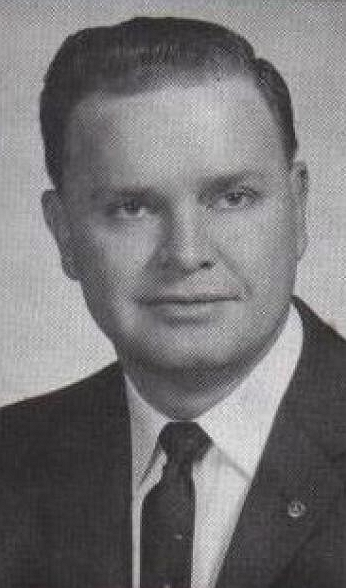Now a regional grocery chain and a subsidiary of the Belgian Delhaize Group, Food Lion began in 1957 with a single store in Salisbury, North Carolina, under the name Food Town and the management of Ralph W. Ketner.
After introducing the Lowest Food Prices in North Carolina (LFPINC) concept in 1968, the grocery chain grew from seven stores to about 800 in 1991, when Ketner retired.

Before that, in 1983, the company had changed its name to Food Lion. In the early 1990s, the grocery chain faced legal battles that curbed its incredible and rapid growth.
Under the leadership of Delhaize Group executives, the company survived the legal challenges and, by February 2007, employed 73,000 people in nearly 1,200 stores and served ten million customers in eleven states.
The regional supermarket chain had humble beginnings.
With many years of experience in the food business, Ralph W. Ketner, Brown Ketner, and Wilson Smith put up capital of $62,500 and convinced many Rowan County residents to buy stock so they could open Food Town #1 in Salisbury.
During the first decade, the company experienced moderate growth: seven stores and $5 million in sales in 1967.
The theory of cost reduction (LFPINC), implemented in 1968, launched the North Carolina small business into the spotlight as a regional and national competitor.
With its executives threatening to jeopardize the company by drastically lowering prices on all items, Food Town needed a sales increase of at least fifty per cent by the end of the year.
Fortunately for the shareholders, the risk paid off. That year, sales increased by eighty per cent.
From 1967 to 1991, when Ralph Ketner retired, Food Town/Lion’s annual growth rate (226 stores in 1983 and 475 in 1986) exceeded the growth rates of Winn-Dixie and Wal-Mart.
Many said this growth created more millionaires among shareholders than any other company in North Carolina.
But The Chain’s Growth Has Created Problems
- Advertising and cost-cutting strategies started fierce competition among southeastern grocers. Food Town was sued for allegedly using slogans that misrepresented competitors and misinformed the public about the extent of its low prices. In the early 1980s, a court ruled that Food Town should change its slogan from “Lowest Prices” to “Low Prices.”
- In 1976, the Federal Trade Commission ruled that Food Town could not merge with Lowe’s Foods of North Wilkesboro because the merger might create a monopoly in North Carolina.
- The company started stores in states where other grocery stores and chains called Food Town had already been established and were still operating.
In 1983, the Salisbury-based company changed its name to Food Lion to avoid legal battles.
By the early 1990s, the chain opened nearly 100 stores a year, but legal problems plagued the company, now owned by the Delhaize Group.
Millions of people watched, for example, a Primetime Live report showing how Food Lion employees mishandled meat and worked in unsanitary conditions.
The episode hampered the company’s rapid growth. Food Lion sued ABC for fraud, alleging that the television network had used illegal methods to obtain the footage.
Food Lion was awarded $5.5 million in damages, which a judge reduced to $316,000. However, a U.S. Court of Appeals later ruled that Food Lion had not suffered a direct injury and set aside all damages.
Also, in the early 1990s, many argued that Food Lion had violated the Federal Labor Standards Act (FLSA), which governs overtime, minimum wage, and child labour laws.
As a result, Food Lion paid $16.2 million at the time, the largest settlement by a private employer for violating FLSA standards to settle the claims.
After these legal problems, the number of Food Lion stores increased, but the chain’s growth was significantly slower than in the 1980s.
Under the leadership of Delhaize Group executives, as of February 2007, Food Lion employed about 73,000 people in nearly 1,200 stores and served almost 10 million customers in eleven states: Delaware, Florida, Georgia, Kentucky, Maryland, North Carolina, Pennsylvania, South Carolina, Tennessee, Virginia, and West Virginia.
The grocery chain has seven distribution centres: three in North Carolina and one each in Virginia, Tennessee, South Carolina, and Pennsylvania.
The company has also initiated what the food industry calls market renewal projects. For example, some Food Lion stores have been remodelled and renamed Bloom or Bottom Dollar based on market research results.
The company donates to various charities, including Children’s Miracle Network, America’s Second Harvest Food Banks, Easter Seals, United Way, American Red Cross, and schools near its stores.